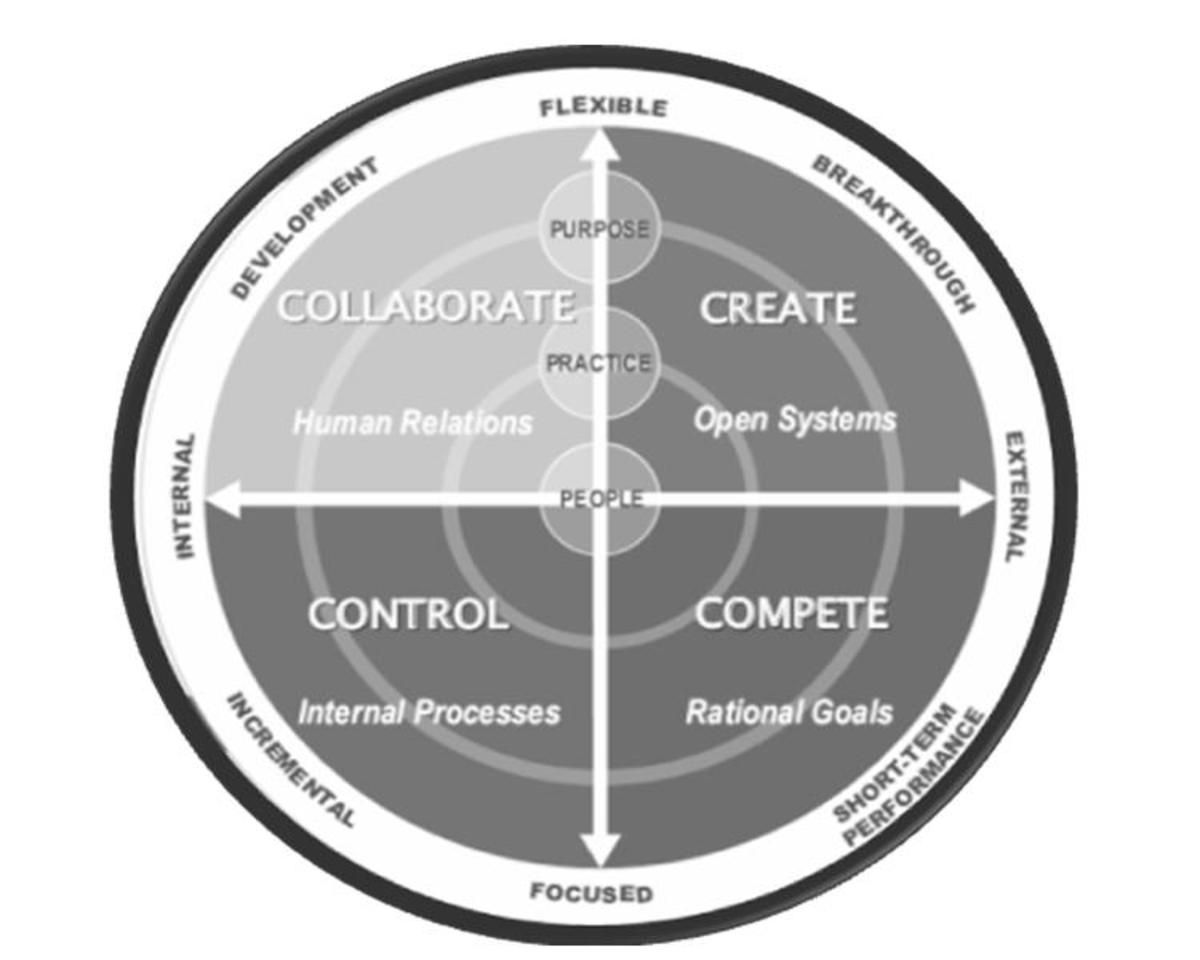Organizational Culture Has No Place in Healthcare: What Changes Are Being Made

As I was thinking how to express the exact thoughts that moved me to write this, I came across a quote from Nelson Mandela that states: “Education is the most powerful weapon which you can use to change the world.”
As simple as those words may sound at first glance, the weight for which they bare down on the reader may be too heavy to carry beyond the page they are written on.
I believe this so because- as simple as those words are - it takes much more than knowledge to change the world. To change the world, we must start by changing or ridding our societies of organizational culture.
What Is Organizational Culturalism?

According to Wikipedia:
“The organizational culture influences the way people interact, the context within which knowledge is created, the resistance they will have towards certain changes, and ultimately the way they share (or the way they do not share) knowledge.”
Organizational culture is comprised of the principles, beliefs, values, and objectives of an organization and its leading members.
In most cases, this culture includes an organization's habits, beliefs, location, environment, assumptions, language, symbols, systems, norms, values, and its overall vision.
One industry that is rethinking the state of organizational culture is the health and wellness industry and whether or not such a thing has a place in the medical sector at all.
The function of education is to teach one to think intensively and to think critically. Intelligence plus character. -Martin Luther King, Jr.
These Trends Are Changing Things for the Better – At Least We Hope So

This year is turning out to be a good year for the wellness industry.
More people started having honest and open discussions about touchy subjects such as mental health, the health benefits of Cannabidiol, and green beauty.
However, positive trends in health and wellness started showing up in trend reports as early as last year.
In 2018, intermittent fasting and breathwork began growing in popularity. Significant food brands such as Kraft started purchasing health-focused food companies as well.
Additionally, health pundits realized that social media is contributing a lot to society's anxiety issues.
Though these trends seem minuscule, they are at least getting the ball rolling in the right direction and opening people’s minds up to the importance of living health-conscious lifestyles.
It is the mark of an educated mind to be able to entertain a thought without accepting it. -Aristotle
Deloitte’s “2019 US and Global Health Care Industry Outlook”

Leaders in the healthcare industry are gearing up to reshape the future of the health community.
Their goal is to build smarter and more sustainable health-centric societies on a global level. Deloitte's report stressed the fact that it also involves collaborating better with stakeholders.
Despite the mood permeating the United States at the moment due to the present Administration’s attitude towards healthcare, the United State's healthcare system is still focused on creating a financial model focused on providing consumers with value rather than basing it on volume.
Leaders in the medical industry have at last learned that it is far more economical to keep people healthy instead of trying to profit from their lack thereof.
More people in the medical field disagree are beginning to trash the old fee-for-service (FFS) philosophy that has falsely supported the United State's health system for decades.
By supporting value-based care (VBC) model, patients that arrive at the doctor's office or emergency room are no longer a source of revenue but rather an expense.
This new system treats patients like members of a team and not merely a number.
Patient loyalty is growing, and medical institutions are looking to build their brand and strengthen their reputation, improving our national healthcare system in the process.
According to Deloitte, the above will shape the following healthcare trend in the United States in 2019 and beyond.
- Collaboration between health systems and health plans
- The shift to wellness rather than illness
- How technology can help put patients at the center
- Increased adoption of virtual care options
- Greater focus on population health
One of the most important actions, things a leader can do, is to lead by example. If you want everyone else to be passionate, committed, dedicated, and motivated, you go first! -Marshall Goldsmith
Ways in Which the UK and Australia Are Leading by Example As Well

As for our cousins to the northwest and southeast, the United Kingdom and Australia are, too, looking to change how they view healthcare.
As the three leaders of the English-speaking world, others from around the globe are continually watching and picking apart the policies, philosophies, and methodologies of “Western” nations.
Take Indonesia, for example, where there are countless cases of patients losing limbs, suffering from severe infections, and even death, not because of a lack of medical facilities, but rather a severe lack of empathy due to an exaggerated FFS healthcare model.
Moreover, that is only one example from around the world when capitalism is applied something that should be considered as a human right and not a way to get rich.
The United Kingdom's oldest medical journal, the British Medical Journal (BMJ) wrote: "Organisational culture represents the shared ways of thinking, feeling, and behaving in healthcare organizations."
The journal went on to state that "The culture of healthcare, which so critically affects all other aspects of the service which patients receive, must develop and change."
In Australia, the government has slowly begun to realize that mental health issues can be handled in better ways other than placing those with mental issues in detention centers.
The Australian Department of Social Services (DSS) is furthering their agenda by offering Mental Health Education Studies Assistance Grants to licenses nurses and health practitioners looking to take mental health courses.
The DDS said on its site: “Funding is allocated to ensure support is provided to the most vulnerable Australians, in areas where there is [the] greatest need.”
In areas of general healthcare reform, Australia has been pushing to change its system for nearly a half a decade, with the Collegian, a journal published by the Australian College of Nursing (ACN), stating “research studies recognize the importance of a PCC approach in the delivery of health care.”
PCC stands for “patient-centered care,” similar to America’s value-based care (VBC) model.
We find ourselves under the government of a system of political institutions, conducing more essentially to the ends of civil and religious liberty, than any of which the history of former times tells us. -Abraham Lincoln
Ignore the Negative Hype and Keep Moving Towards Change

The partisan politics and trivial media keep the hype alive, while countless others in the health industry seem to be ignoring it and keep steadfast in their move towards changing a broken system.
However, it also starts with us as well - the public at large - to support those who truly do care and believe everyone has a right to be healthy.
© 2019 Sarah Draper








